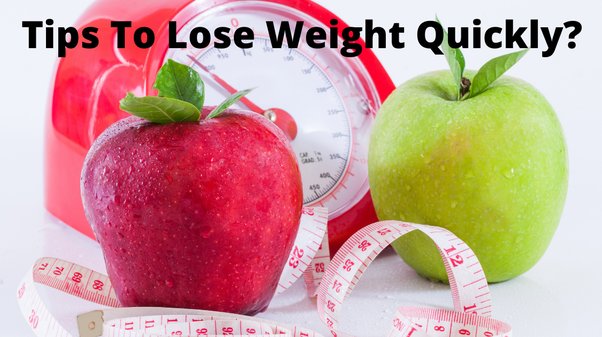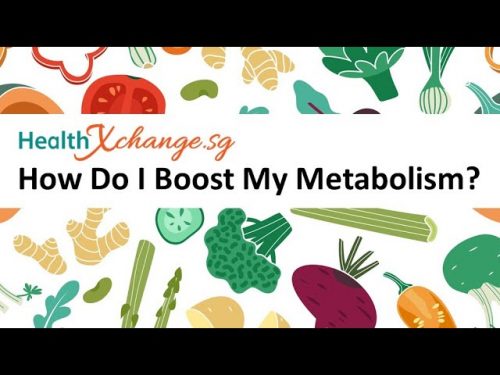
For weight loss, it is important to eat a balanced diet. You can lose weight by eating fiber-rich, high-protein, low-fat foods in your daily meals. Here are some delicious plant-based dishes that are great for weight loss. Read on to learn more about this topic! Make sure to incorporate these meals into your regular diet. These recipes are also easy to prepare! So get started today!
Plant-based diets aid in weight loss
Many benefits can be derived from eating a plant-based diet. It is a low-intake diet of animal products that is high in plant food. Plant-based diets include plenty of whole grains, fruits, vegetables, beans and seeds. They provide essential vitamins and nutrients, and they promote immune system health. These foods contain antioxidants which support your body’s natural ability to fight disease. Additionally, plant-based meals reduce your risk of heart disease.
You should choose meals made from plant-based ingredients for weight loss. This means that there are fewer artificial and preservative-laden ingredients. When buying prepared foods, try to recognize all of the ingredients, and if possible, buy the freshest produce. You'll be able to avoid making dietary mistakes. You'll also reduce the chances of consuming excess calories. Additionally, plant-based food is more filling and satiating than processed foods which can lead to weight gain.

Diets rich in fiber
Your goals and health will dictate the amount of fiber that you consume. In order to be healthy, you should eat a wide range of nutritious-dense vegetables and whole grains as well as lean sources of protein. A shopping list can help you get started on this new diet plan. A well-balanced diet will help you lose weight, regardless of how much fiber your body consumes. Here are some tips:
Fiber is abundantly available and has many benefits. According to the U.S. Dietary Guidelines, an adequate intake of fiber is between 25 and 28 grams per day for men and 36 grams for women. However, most people don't get enough fiber. Smart swaps are an easy way to increase fiber intake. Many foods are high in fiber and many are delicious. There's no reason to feel guilty about eating these foods.
Low-fat
Low-fat diets can seem more effective at losing weight than high-fat ones, but there are many things to be aware of before starting a diet. A low-fat diet can lead to an unhealthy diet, which can increase your risk for heart disease. A low-fat diet may lead to more carbohydrates than protein. This could mean that you are missing important nutrients. According to the USDA, adults should consume between 45-65 percent and 25% of their calories from carbohydrates and less protein.
Fruits, vegetables, and other foods are naturally low in fat. Low-fat diets should be focused on these foods, and avoid processed foods with high levels of saturated fat. Manufacturers often add these types of fat to foods to increase their shelf life, but they are bad for your health. Additionally, saturated fats can cause your cholesterol levels to increase, which increases your risk of heart disease. To lose weight, you should avoid processed foods and opt for whole, low-fat, or fat-free versions of them.

High-protein
Your initial diet will determine how much protein you need to lose weight. It is better to choose leaner forms of protein than those with high levels of saturated fat. Protein should be paired well with carbs like vegetables or fruits. A protein powder can be added to your morning smoothie. Follow this sample high-protein diet if you aren't sure how much protein you need each day.
Poultry and meat are excellent sources for protein. They are also filling and satisfying. These foods are also packed with minerals and iron. Meats actually contain more protein per gram than any other food. A cup of turkey breast meat or chicken breast has around 25 grams of protein and 120 calories. Low-fat cottage cheddar cheese provides 28 grams of protein per serving. High-protein foods aid weight loss
FAQ
What Amount of Weight Can You Lose In A Week?
Your current body fat percentage will determine how much weight you can lose. The first thing to do is to calculate how much weight you want to lose and then find out what your BMI (Body Mass Index) is. Your BMI tells us how much weight you should lose in order to achieve this goal. If your BMI is 25 or greater, you're overweight. If your BMI exceeds 30, you may be obese.
For example, if you weigh 200 pounds, your BMI would be calculated at 28.7. To reach a healthy weight, you would need to lose 70 pounds. To see if you're overweight, visit www.healthyminds.com/bmi/.
Once you have your BMI, you are able to use this formula for calculating how many pounds each week you will lose.
(Your Goal Weight - Current Weight)/BMI * 7 Number Of Pounds Lost Per Week
To lose 50 pounds in a month, you would need to exercise for 2 weeks. That's 56 days divided by 7 pounds per day. This equates to an average of 8.3lbs per week.
You could also try this calculator from www.weightlosscalculator.net. It gives you a rough estimate of how many calories you should eat daily to lose 1 pound per week.
How often do people fast regularly?
Most people who follow a ketogenic diet fast once per week. Some people fast twice weekly. Others fast three-times per week.
The length of each fast varies too. Some people fast for 24 or 48 hours, while others go for 48.
Some people may even stay awake for 72 hours. However, extreme cases like these are rare.
Are there any side effects of intermittent fasting?
Intermittent fasting does not have any known side effects. But, it is possible to experience minor side effects if you plan poorly.
For instance, if breakfast is skipped, you might feel uneasy all day. You might also experience headaches, dizziness, fatigue, and muscle cramps.
These symptoms usually disappear within a few days.
What's the difference between intermittent fasting versus calorie restriction
Calorie restriction is a way to eat less than your body needs. Intermittent fasting is different because it doesn't involve restricting calories. Rather, it focuses on eating fewer calories throughout the day.
Intermittent fasting can be more effective as it allows you to eat the foods you love and not feel guilty.
Both methods have their merits and weaknesses. You have to decide which method you prefer.
How long should I do Intermittent fasting to lose weight?
The answer isn't as easy as it seems. There are many factors that need to be taken into consideration when deciding how many days of fasting is necessary for optimal fat loss. These factors include:
-
Your age. For example, if you're young (under 40), intermittent fasting may be too difficult for you because you have less time to recover from each day's fast. You may not have enough energy for a sustained period of daily fasting if you are older (over 60).
-
Your current body composition. If you already have a lot of muscle mass, you'll likely benefit most from longer periods of fasting. However, if you have little muscle mass, then shorter periods of fasting may be better suited for you.
-
How active you are. You may need to increase your fasting time if you exercise often. This will ensure you get enough rest between workouts.
-
Your health history. Patients with certain medical conditions, such as heart disease, diabetes, or cancer, may need additional fasting monitoring.
-
How do stress and anxiety affect you? Stress can cause us to eat more. This problem can be avoided by increasing the length of your fasting periods.
-
Your diet. Certain diets, like ketogenic diets, may require even longer fasting periods.
-
Your sleep quality. Insufficient sleep has been associated with decreased metabolism and increased appetite. It may take some trial and error before you find the right combination.
-
Your daily intake of protein. Protein stabilizes blood sugar levels. Therefore, eating more protein could result in lower insulin levels. This will allow you to fast longer.
-
It doesn't matter if you want to gain or lose fat, those who are trying for weight gain will often require longer fasting periods.
-
What percentage of calories do you consume during your fasting window? Fasting for fewer calories a day can result in more fat loss than fasting to eat more calories a day.
-
Your overall fitness. People who are fit and fast burn more calories per day.
-
Your gender. Women tend to have a greater appetite than men, so they might need to fast for longer periods. Women may only fast for 20-30 mins each morning because they have a smaller appetite.
-
Your lifestyle. Are you someone who is active? Do you do a lot of exercise each week? Is your job a long, sedentary one? These factors can impact how fast you should be moving.
-
How much do you spend per month on food? You don't have to spend much on groceries to eat healthy food. You can save money by buying whole grains instead of white bread, fruits instead of candy bars, and lean meats instead of fatty cuts.
-
It's important to manage your hunger. Fasting may not be necessary if you don't want skip meals.
Statistics
- A 12-week study in 20 women with obesity found that walking for 50–70 minutes 3 times per week reduced body fat and waist circumference by an average of 1.5% and 1.1 inches (2.8 cm), respectively (healthline.com)
- According to Harvard Health, it's estimated that a 155-pound (70-kg) person burns roughly 112 calories per 30 minutes of weight training (5). (healthline.com)
- Another study found that 24 weeks of weight training led to a 9% increase in metabolic rate among men, which equated to burning approximately 140 more calories per day. (healthline.com)
- Among women, the increase in metabolic rate was nearly 4%, or 50 more calories per day (14Trusted Source (healthline.com)
External Links
How To
How to exercise to lose weight
One of the best ways you can lose weight is to exercise. Many people do not know how they should exercise. You should do cardio exercises, such as swimming, running, walking, swimming, etc., as well as strength training exercises, such as pulling up, pushingups, pull-ups and lunges. Combining both of these exercises will help you lose weight the most. Find friends who are open to joining you on your exercise journey. You can either go to the gym or walk around your local area. You need to keep doing the same thing no matter what kind of activity. It's easy not to stick with a routine when you first start working out. Just keep at it!